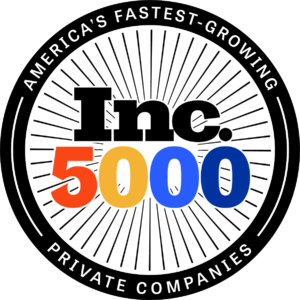Why lease administration software is important for real estate brokers
Commercial real estate services firms typically provide day-to-day management of property leases for their clients. This service is a relatively small source of revenue. However, it serves as a foot in the door to get the more profitable business: the big transactions when companies acquire new space.
That’s why many commercial real estate brokers offer lease administration services. As part of that service, they include a software solution that can be used by both the client and the service provider. It helps the service firm more efficiently manage leases, and it gives the client easy access to their lease information when they need it.
Enhanced Data Transparency
With lease accounting software, real estate brokers can provide their clients with full transparency. Real estate lease accounting software allows clients to easily access detailed lease data, track changes in real-time, and generate custom reports. Brokers that offer this level of visibility build trust and demonstrate their commitment to client success.
Compliance & Reducing Risk
Lease accounting software helps real estate brokers ensure their clients remain compliant with accounting standards like ASC 842 and IFRS 16. Compliance is crucial for avoiding audit issues and penalties. By integrating this software, brokers show clients that they prioritize accuracy, making them invaluable partners.
Faster Decision-Making
Integrated lease software not only simplifies day-to-day management but also accelerates decision-making processes. Brokers using end-to-end solutions can help clients respond quickly to lease changes, opportunities, or shifts. This responsiveness can be a game-changer in a fast-paced real estate market.
The dilemma for companies: one system or two?
The need for lease accounting software solutions creates a dilemma for large organizations that currently maintain lease data in a broker-owned lease administration tool.
Should they purchase one of the standalone lease accounting software solutions, and keep lease administration information in the existing system?
Or, should they move to one complete, integrated lease solution that does both?
The two-system approach: a logistical nightmare
A single-system approach is by far the better option. For one thing, the lower-end lease administration tools that real estate service firms typically offer don’t integrate well with other systems.
Lease payments and other data need to be regularly fed to general ledger systems. Since low-end lease admin tools can’t send data feeds, companies would be forced to use manual export/import processes.
Not only is that incredibly time consuming, but it’s expensive to set up. For the real estate firm, integration with lease accounting software solutions could cost more than they’re currently paying for their administration tool.
For the client, relying on manual data moves is risky: it’s prone to error. When it comes to accounting data for multi-million dollar real estate leases, it’s a risk many CFOs (and their audit firms) won’t even consider.
And there’s even more manual work involved in keeping lease data up to date in lease accounting software solutions. Property leases can and often do change during the course of the lease: payments change, options are executed, and space is added or removed. That means more manual movement of data, and more risk of mistakes, when you’re stuck with two systems.
Few large organizations are going to accept a difficult ongoing data management process like this. That’s why end-to-end lease administration and lease accounting software solutions are catching on.
The issues with moving to a single system
When a large company decides to move to a combined solution, they face another problem with their real estate firm.
Finance executives may not want an outsourced real estate firm to have administrative access to their accounting data. That decision may be made based on lease accounting guidance from audit partners. And they certainly don’t want their real estate firm to OWN their lease accounting software solution.
For real estate services firms, the handwriting is on the wall: clients need to centralize all their lease data, and many will choose to take it back into their own hands. That could easily mean the real estate broker loses their foot in the door that ensures they get the bigger business associated with property leases.
How Real Estate Brokers Can Keep Their Clients with Lease Accounting Software
Smart real estate service providers won’t just take this situation lying down and wait to lose customers.
The good news is, if you’re proactive you can get out in front of the problem and actually improve your relationship with your clients.
Our advice? Take these steps now:
1. Learn about end-to-end lease administration and lease accounting software solutions.
You may be able to improve your position by offering technology that better meets your clients leasing needs instead of one that’s only half a solution.
2. Get a seat at the table and help clients make smart decisions.
The fact is, if your clients choose the right lease accounting software solutions, you can still keep their lease administration business.
Visual Lease, for example, has the security infrastructure in place to allow an outsourced firm to work with a client’s lease administration data, while controlling access to sensitive accounting data.
Don’t wait for your clients to come to you with this problem.
Get involved and earn their trust by recommending smart lease accounting software solutions. If you do, you can stay in the game and keep your valued clients. If you’re a real estate broker looking for a premium real estate accounting software that can integrate with existing systems, check out Visual Lease. Our team is happy to answer any questions and get you started today.
Want to see how it works? Request a demo now.























